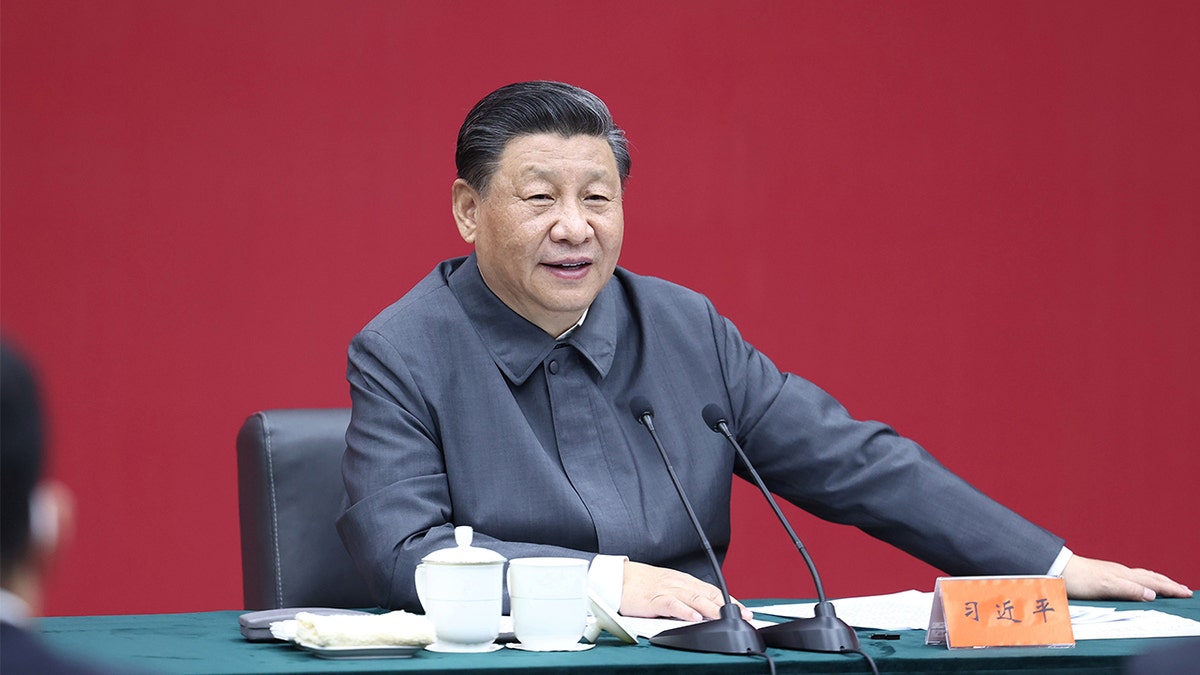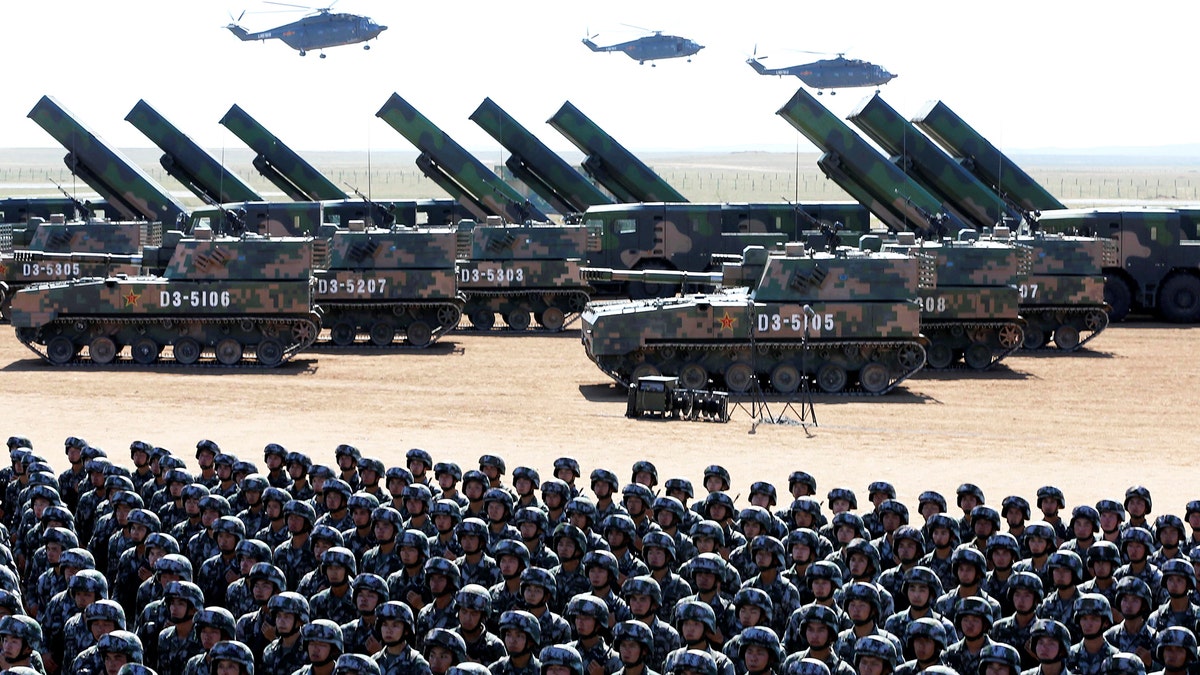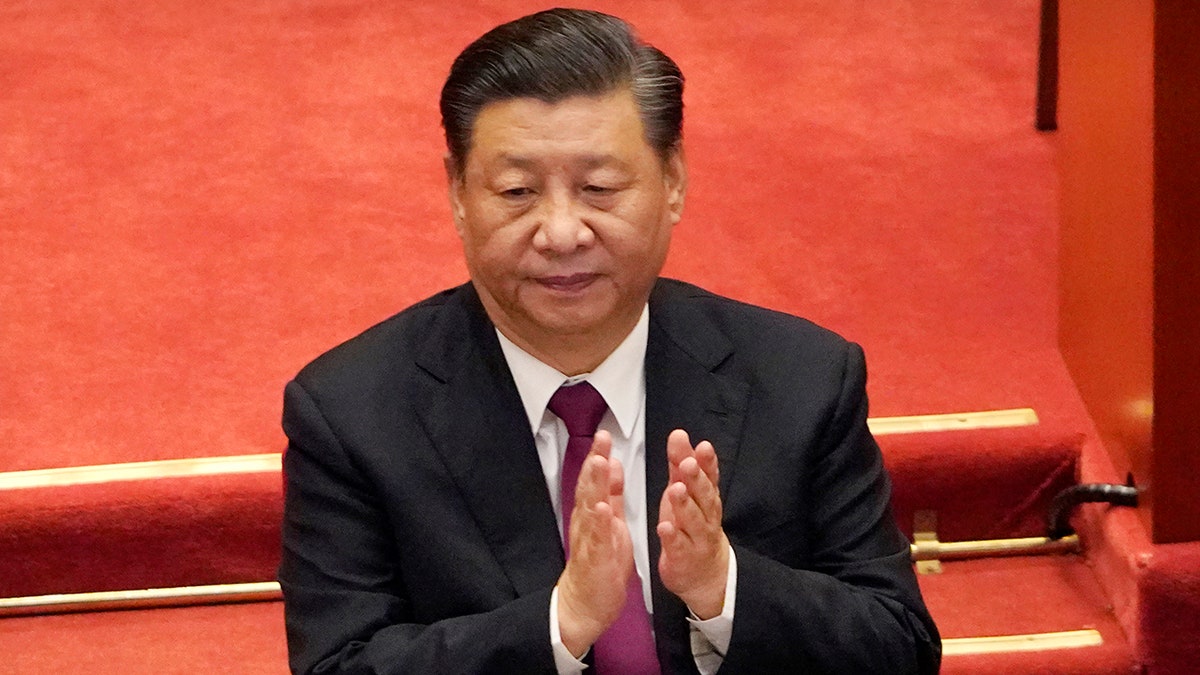Keoki Jackson highlights how the United States can counter China's influence globally
MITRE senior vide president Keoki Jackson warned China has a 'multi-generational strategy' to be 'dominant across areas of economics, military and technology.'
China is aggressively pursuing a strategy to dominate globally in areas like the economy, military and technology, warmed Keoki Jackson, senior vice president and general manager in MITRE's national security sector.
"China has laid out a multi-generational strategy," Jackson told Fox News Digital at the Aspen Security Forum last month. "It’s very ambitious and it does intend to be competitive or dominant across areas of economics, military and technology, just to name maybe the top three."
Jackson also warned about the Chinese government going after areas of leadership in the United States, including technology and IP theft, forced technology transfer, and doling out subsidies in their priority areas.
"Those are things that we need to combat not just from the U.S., but our allies and partners as well," he added.

Chinese President Xi Jinping, also general secretary of the Communist Party of China Central Committee and chairman of the Central Military Commission, sits down with representatives of teachers and students at a symposium and delivers an important speech during a visit to Renmin University of China in Beijing, capital of China, April 25, 2022. (Ju Peng/Xinhua via Getty Images)
There is "always more to be done" when it comes to countering Chinese influence abroad, Jackson advised, specifically, highlighting the importance of engaging in the Indo-Pacific region and Oceania.
"I think we have probably offered a policy of a little bit of benign neglect over many, many years," he said. "We need to reengage with those traditional partners."
RUSSIA AND CHINA GROW CLOSER FOLLOWING PELOSI'S TAIWAN VISIT
Jackson noted that investment from China around the world often comes with "strings attached," and the United States can offer an alternative which can provide security and prosperity.
"We need to present that alternative to the authoritarian vision that comes [from China], and really focus on proving the rewards, whether it’s security, prosperity, for all of those nations, that come with the democratic values and freedoms that we espouse," he added.

Soldiers of China's People's Liberation Army (PLA) take part in a military parade to commemorate the 90th anniversary of the foundation of the army at the Zhurihe military training base in Inner Mongolia Autonomous Region, China. (REUTERS)
Investing in technology, Jackson said, is critical to maintaining the United States' role as a global superpower.
"We have to recognize that incentives are important, not just monetary incentives, but incentives, broadly speaking," he said. "I’ll just put it this way: The United States should not be unilaterally disarming in what is a global competition, when you think about things like semiconductors, for example."
CHINA COULD INVADE TAIWAN BEFORE THE 2024 US PRESIDENTIAL ELECTION: SOURCES
In order to maintain the U.S. technological advantage, Jackson also underscored the importance of investing in a "highly skilled technical workforce."
"I think we’re doing a great job in fixing some of the historic challenges that we’ve had in terms of helping people understand the value of these kinds of STEM careers and what they can do for themselves, their families, and, of course, for the nation, for technology as a whole," he said.

Chinese President Xi Jinping applauds during the closing session of the Chinese People's Political Consultative Conference (CPPCC) at the Great Hall of the People in Beijing, Wednesday, March 10, 2021. (AP Photo/Mark Schiefelbein)
CLICK HERE TO GET THE FOX NEWS APP
"I think we still have work to do to maybe address some of the inequities and the access challenges. So diversity, equity, inclusion are clearly areas where we need to bring in a much broader spectrum of our United States population to enable what we will need for competition in the future."









































